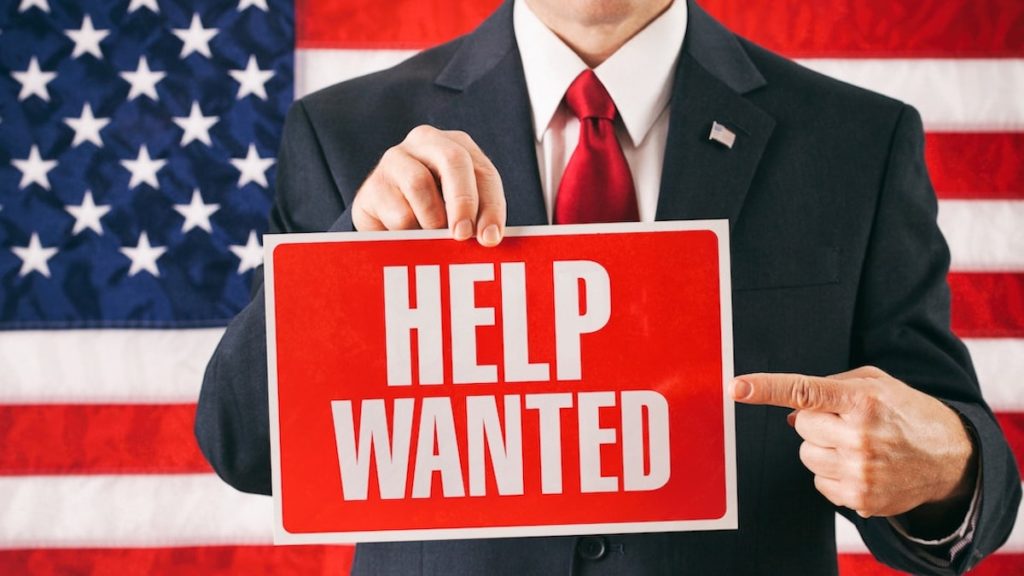

Washington, D.C. (PPD) — The U.S. Bureau of Labor Statistics (BLS) monthly jobs report finds the U.S. economy added 638,000 jobs in September and the unemployment rate fell more than expected to 6.9%.
Forecasts for total nonfarm employment ranged from a low of 375,000 to a high of 900,000. The consensus was 575,000. Forecasts for the unemployment rate ranged from a low of 7.0% to a high of 8.0%. The consensus forecast was 7.7%.
The labor force participation rate rose 0.3 to 61.7%, missing the forecast. Forecasts ranged from a low of 61.5% to a high of 61.7%. The consensus forecast was 61.5%. The less-cited employment-population ratio increased 0.8 to 57.4%.
In October, average hourly earnings for all employees on private nonfarm payrolls increased by 4 cents to $29.50. Average hourly earnings of private-sector production and nonsupervisory employees rose by 5 cents to $24.82. The large employment fluctuations over the past several months especially in industries with lower-paid workers—complicate the analysis of recent trends in average hourly earnings.
Forecasts for 12-month wage growth ranged from a low 4.3% to a high of 4.6%. The consensus was 4.6%. Wage growth was 4.5% in October, slightly less than the forecast but still far above average as has historically been the case during the Trump Era.
The change in total nonfarm payroll employment for August was revised up by 4,000 from +1,489,000 to +1,493,000, and the change for September was revised up by 11,000 from +661,000 to +672,000. With these revisions, employment in August and September combined was 15,000 higher.
U-6 is an alternative measure of unemployment defined as the rate for total unemployed, plus all marginally attached workers and total employed part time for economic reasons as a percent of the total civilian labor force, plus all marginally attached workers. In September, the U-6 rate fell significantly from 12.8% to 12.1% and has fallen 10.8% over the last six months.
The most damning journalistic sin committed by the media during the era of Russia collusion…
The first ecological study finds mask mandates were not effective at slowing the spread of…
On "What Are the Odds?" Monday, Robert Barnes and Rich Baris note how big tech…
On "What Are the Odds?" Monday, Robert Barnes and Rich Baris discuss why America First…
Personal income fell $1,516.6 billion (7.1%) in February, roughly the consensus forecast, while consumer spending…
Research finds those previously infected by or vaccinated against SARS-CoV-2 are not at risk of…
This website uses cookies.